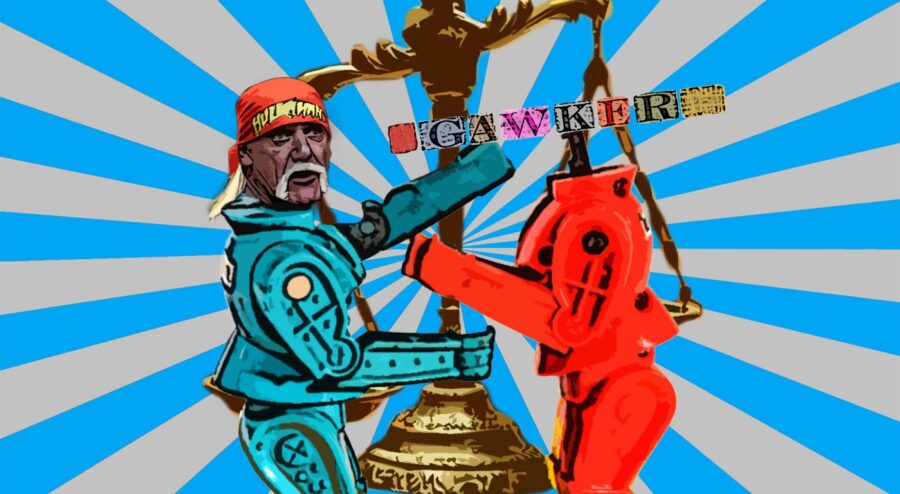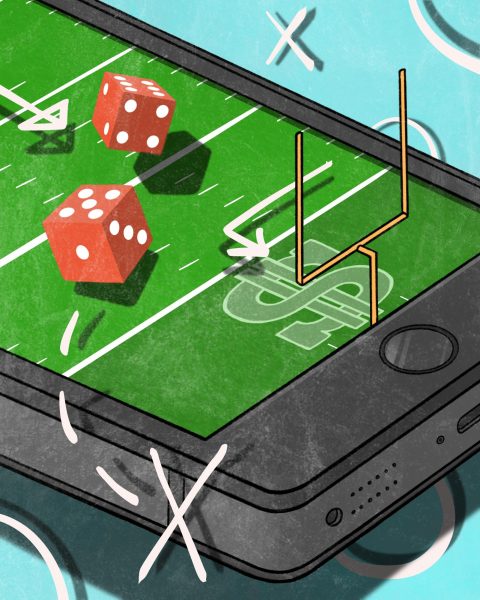Hulk Hogan Attacked The First Amendment and Fucked Gawker in One Lawsuit. He Won.
Why this lawsuit went beyond normal celebrity squabbles and how it could be detrimental to the future of journalism
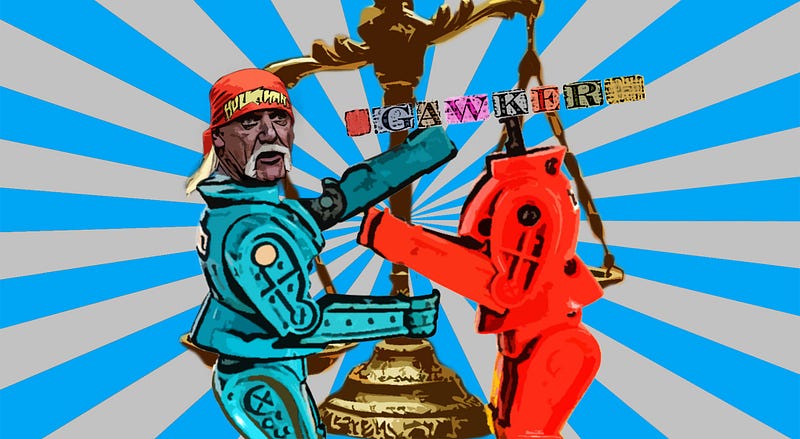
Hulk Hogan Attacked The First Amendment and Fucked Gawker in One Lawsuit. He Won.
Why this lawsuit went beyond normal celebrity squabbles and how it could be detrimental to the future of journalism
With great celebrity comes little privacy. It is just a fact. When a person steps into the limelight their life becomes public — especially when that person is prolific. With that comes a certain exception that many find hard to understand: the reasonable right to privacy. This means that the person doesn’t have the same luxuries a private citizen does in this regard. Well, at least until Hulk Hogan sued Gawker and set a scary precedent that tramples the right to free speech and press. In one foul swoop, Hogan fucked Gawker — but he also fucked the rest of us and our constitutional right to free speech.
The recent ruling in favor of Terry Bollea — more commonly known as Hulk Hogan — in his suit against Gawker over the release of his sex tape is a violation of the First Amendment and a stepping stone to wider media censorship. By ruling in Bollea’s favor, the court has given celebrities a pathway to block journalists from releasing newsworthy material if they feel it presents them in a negative light. This is wrong, and should be abhorred by anyone who values the right to free speech and the freedom of the press to hold individuals in power accountable.
The role of journalists is to report the news; whether it be the criminal activities of local law enforcement, political coverage of the presidential election, or even the latest gossip about Paris Hilton. Although many journalists and news reporters balk at the idea that tabloid news is anything but, it is still an area that must be covered.
From time to time, a story will break that moves away from celebrity gossip into more intriguing and in-depth news. Such was the case with Mel Gibson over his anti-Semitic rant during a DUI stop, and with the late Former Toronto Mayor Rob Ford smoking crack. The reason these stories could be considered more newsworthy is because said individuals are in the public eye and are thus not given the same reasonable expectation of privacy as private individuals. Because they have traded this privacy for celebrity, it is understood that any action — both public and private — may at anytime be scrutinized by their audience and the public at large.
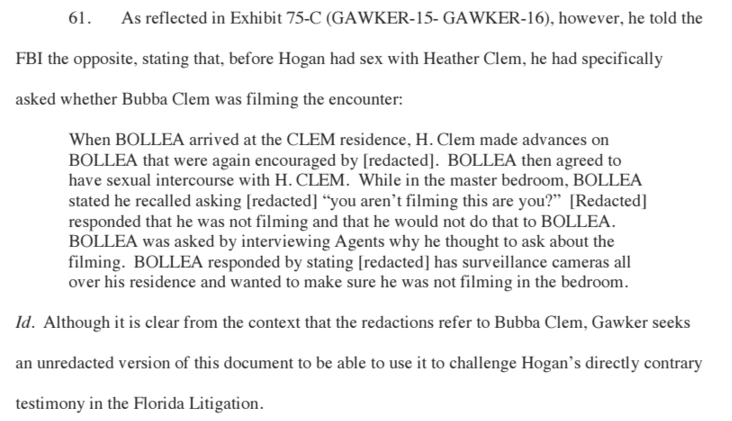
This also applies to the 2012 article published by Gawker depicting a one-minute clip and description of the more than 30-minute sex-tape of Hulk Hogan and a woman who appears to be Heather Clem. However, this footage struck a nerve with Hogan and he sued. The resulting trial and appeals are a whirlwind of free speech vs. privacy issues, which shouldn’t have applied to Hogan because he is a public figure. Needless to say, there are many issues to address in this situation, the least of which make my head spin. Did Hogan know he was being filmed? Had he seen the movies before? Was it really a breach of privacy like Fapgate? I cannot answer for certain, but what I can say is that Hogan neither deserves the outrageous sum for damages ($140 million) nor does he have the right to withdraw the sex tape. The latter for one key reason: He only sued to avoid the release of another tape where he goes on a racist rant, of which Gawker had no idea existed until recently unsealed documents were released to the media company.
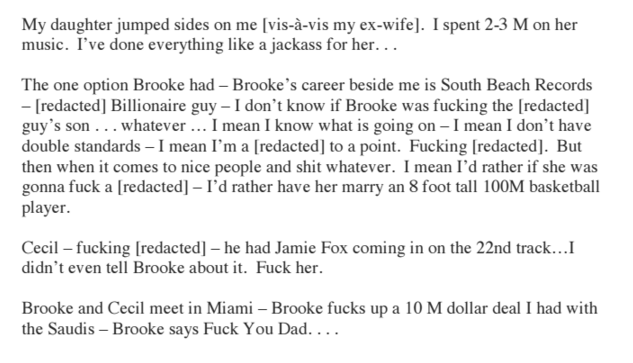
You’ll notice in the transcript some words are blocked out. They are done so to uphold the courts rule against obscenity. In this case that word is “nigger.” I don’t like that word, but you need to know what he said to understand the full scope of the case and why he was trying to avoid bad publicity.
But I digress. It is in Gawker’s right — some would say tabloid duty — to release the information, if not the whole video. Why? Because like Gibson and Ford, Hogan is a man everyone knows. He has become as iconic as Superman in the world of pro-wrestling and reality television. His words and actions matter to people, and thus his transgressions do as well.
Therein lies the newsworthy angle, and it is the duty of journalists to relay this to the public. Yes, he has a lot at stake in regards to his racist comments; in fact, had that tape been made public this would be an entirely different story. The public would not see him as a victim of peeping-tom-like journalists but for what he really is: a racist old man who probably gets off on being filmed. Instead what we are left with is a dent in the protections journalists need to continue their jobs in reporting the facts.
One key factor in this case and the exception to the reasonable expectation of privacy is that Hogan claims to be two people. He wants to make a clear and utter distinction between Hulk Hogan the personality, and Terry Bollea the private citizen. During the trial, Bollea or Hogan — it’s hard to distinguish between the two — takes the stand and tries to explain the difference. It is like watching Jekyll explain to the court that it was Hyde who is the monster, except in this case Hyde is a celebrity wrestler who was caught fucking on camera. Or is that Bollea?
Whoever it is — Bollea or Hogan — he does not get to choose which person he is at any given time in order to serve his needs. Just as Lady Gaga will always be Lady Gaga not Stefani Joanne Angelina Germanotta to the public. She gave up the right to be seen by the public as anything else when she stepped into the limelight in order to enjoy the benefits celebrity offers.
The same applies to KISS front man, Gene Simmons, Ozzy Osbourne, or Elvira Mistress of the Dark. They built their careers on an alter-ego they will forever be known as in the public eye. They do not get to change this at will because of bad publicity. It does not work that way. Likewise, Hogan/Bollea does not get to separate the two simply because it suits him. Why does this matter? Because Hogan has been known to go on air and discuss the size of his dick. As the video shows, the size of his member alludes to the fact that his sex life — whether Bollea’s or Hogan’s — is not a private issue. It was not taken away from him by Gawker; he gave the public access to his personal life with his many interviews about how many women he’s fucked and the size of his dick. In short, his case for privacy is non-existent.
If none of that matters to you, I understand. Privacy in this day and age is like the gold that so few have. Almost everyone I know has sent or received some sort of homemade porn. Fapgate was a perfect example of that. Once those images are on the web, we have no control over where they go or who sees them. That is a fact. And for the most part, we accept that when we hit send. But the issue that really strikes home is the disregard for the First Amendment.
Journalists get tips, leaks, leads, and so much more in confidence. A lot of the time it is nothing more than soft news easily found on Google. However, when we receive something substantial we use our best judgment to disseminate the information. The First Amendment grants us this freedom. It is how Watergate was reported, the abuse at Guantanamo Bay exposed, and Wikileaks cables were shared with millions. Without this protection, the great muckrakers of past, present, and future could not operate. It would hinder the public’s ability to accurately make informed decisions about government, and allow for propaganda and censored news to be the daily norm.

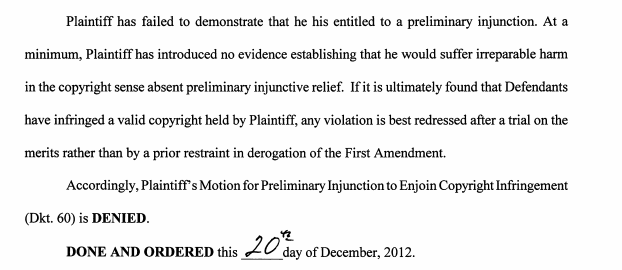
We — the Media — have fought tirelessly to ensure that doesn’t happen. Yet in this case the jury seemed to believe the First Amendment did not matter. Whether it be for privacy as mentioned above or because of some weird vendetta against media as a whole, it is still dangerous. Despite earlier rulings in favor of Gawker, this trial could set a precedent that opens a path for public figures to stonewall and silence journalists. By reversing earlier decisions, the court makes the claim that the First Amendment does not apply in regards to public figures who do not have a reasonable right to privacy. Imagine for a moment if this were the case with Watergate. Woodrow and Bernstein would not have a story and the world would not know the illegal activities of former President Richard Nixon. Yes, it is a more extreme example, but it applies just the same.
There is no doubt that Gawker’s ethics are questionable. Given the choice, I would not release the tape. Sure I would write about it because, again, he is a public figure with a large following, but I do not see the need to actually show the sex act. That is my prerogative as a journalist, just as it was theirs to do so. But I stand by Gawker because it is their right to publish what they see fit. None of it was libelous, none of it was false, and none of the story was taken out of context from the video. They did nothing wrong ethically so they are protected by their right to free speech.
The court has failed its people and failed to protect journalists whose job it is to relay information to the public. It is a disgrace to see such a tragedy take place, and a looming danger for reporters across the nation who wish to share pertinent information. We must now glance over our shoulders less we find ourselves in a similar situation as Gawker.
To Gawker Media and all in its employment know this: You are not alone in this fight. You are journalists just the same as the rest of us and deserve to be treated as such. I am here — as I hope other journalists are — behind you hoping you win this battle in appeals.
And now to Hogan I speak directly. Terry or Hulk, or whatever the fuck persona you decide to take on today, you are a coward and a racist using the courts to save your own hide. Your videos are — in my opinion — yours, and I am sorry they were released without your permission. That does not give you the right to come for a journalistic entity in the way that you have. It certainly does not grant you the right to the vast amount of reparations in damages you were awarded. You gave up the right to privacy as both Hogan and Bollea when you first walked into the wrestling ring.
You did so when you went on Howard Stern to talk about your sex life and when you signed the contract for your reality show. You do not get to pick and choose any longer what is and isn’t for the public to see. If it comes out, deal with it and try to move on. You are no longer America’s hero; you are a broken-down B-list celebrity pining for one more moment in the limelight while trying to hide your racist beliefs.
I hope Gawker drags you through the mud; you sure as hell deserve it.
Graphic by Albert Serna Jr.

